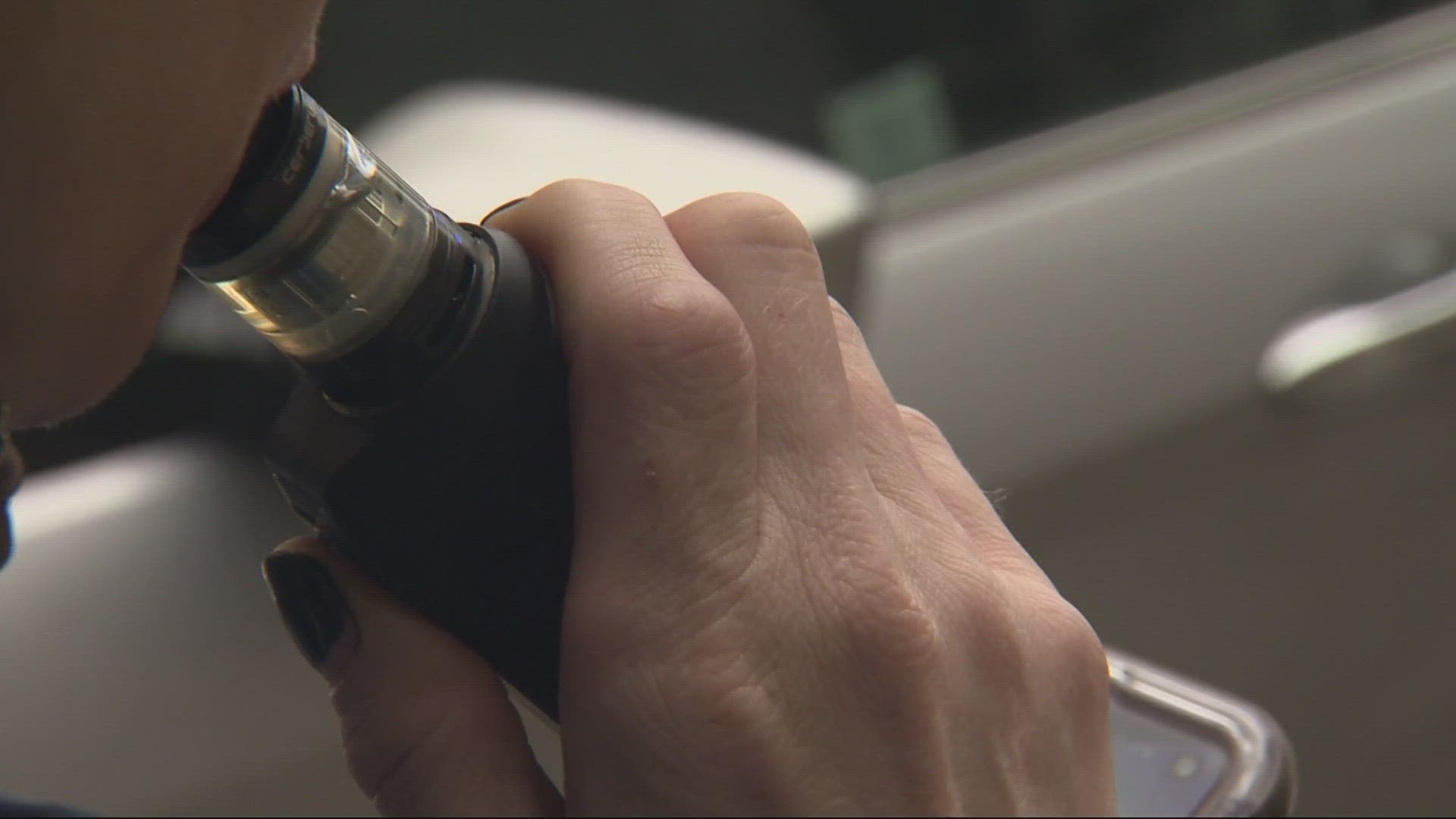PORTLAND, Ore. — According to a new report released by the American Lung Association on Wednesday, Oregon and Washington earned failing grades when it came to preventing the sale of flavored tobacco products. This is the 22nd year that the American Lung Association has commissioned its 'State of Tobacco Control' report. It looks at how each state's policies are working to reduce tobacco use.
"I think what this report does is that it really provides some opportunities for elected officials to see what they can do to further the mission that the American Lung Association has to raise our first tobacco-free generation of kids," said Carrie Nyssen, senior director of Advocacy for both Oregon and Washington. "Hopefully, we can both see that in our lifetimes."
The report looks at five areas: Tobacco prevention and control funding, tobacco taxes, smoke-free air, access to cessation services and preventing the sale of flavored tobacco.
Oregon and Washington both earned an 'F' on the report for failing to prevent the selling of flavored tobacco products.
"Smoking rates are decreasing in both states, so that's the good news. The problem is people are replacing the use of combustible cigarettes with electronic vaping devices, and we're just seeing an epidemic of youth use of those devices. So that's a real concern we have." Nyssen said.
The Oregon Health Authority says that around 8,000 people die each year from tobacco-related causes. Oregonians lose an estimated $5.7 billion each year in medical expenses and lost productivity from tobacco.
In 2022, Washington County commissioners approved Ordinance 878, which would have prevented businesses from selling flavored tobacco products, but that order is currently tied up in a legal battle after a judge blocked it saying any ban of such products should come from the state level. In Multnomah County, commissioners approved a similar ban, but that was challenged in court as well and is on hold. The Multnomah County ban would have taken effect on January 1, 2024, but was blocked just days before it was set to take effect.
For Washington, in addition to the failing grade on preventing the sale of flavored tobacco, the report also gave it a failing grade for funding programs that prevent the control of tobacco. The report says Washington allocated $4,636,500 during fiscal year 2024 adding just under $2 million in federal funding, which was about 10% of the CDC recommended level. In comparison, Oregon earned a 'B' spending $30,356,750 FY2024 or 77% of the CDC state recommended level of spending for the state.
"Washington hasn't funded their program adequately for over a decade; that's certainly the opportunity that Washington should take a look at. Oregon fares much better than Washington in this report." Nyssen said.
The American Lung Association says it will work with each of the 50 state's legislatures on improving each of the areas graded and focus on those areas where each state earned a failing or low grade. Alabama and Georgia were among the worst states earning 'F's' across the board. Nyssen says no state earned all 'A's', but California and Massachusetts were ranked as the best states for tobacco control.

